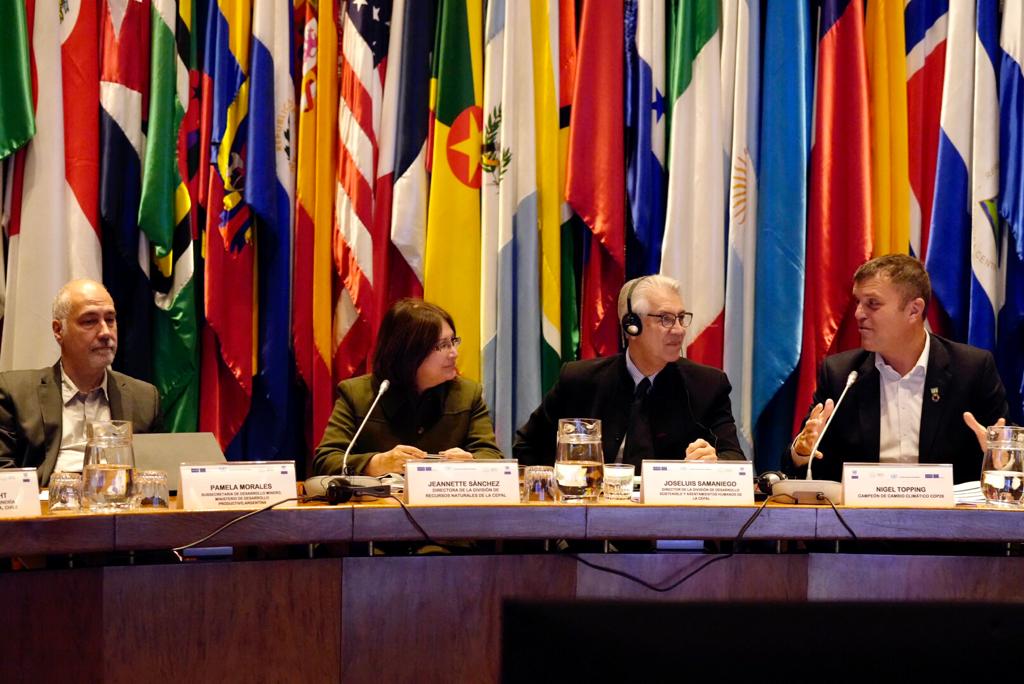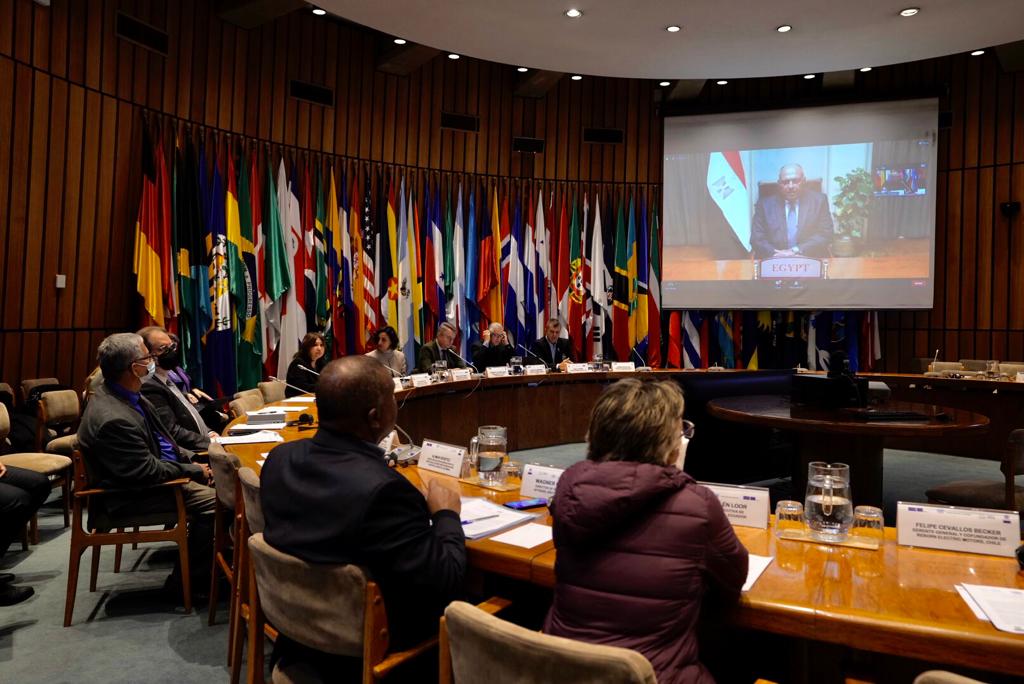Representatives Agree to Move Forward on the Financial Structuring of Projects and Address that Gap in Climate Finance in View of the Upcoming COP27, Presided by Egypt
Work area(s)
The Roundtable on Climate Finance and the Energy Transition in Latin America and the Caribbean concluded today at ECLAC’s headquarters in Santiago.

Government representatives from numerous countries in the region, as well as international organizations and multilateral and private financial institutions, concluded this Friday, September 2, their debates at the Roundtable on Climate Finance and the Energy Transition in Latin America and the Caribbean – which took place at the headquarters of the Economic Commission for Latin America and the Caribbean (ECLAC) in Santiago, Chile – with a call to escalate action on climate finance and activate projects and a strengthened institutional framework, ahead of the upcoming COP27.
The event, which was held using a hybrid format (in-person and virtual), was one of the five Regional Forums on Climate Initiatives to Finance Climate Action and the Sustainable Development Goals (SDGs) in preparation for the 27th session of the Conference of the Parties to the United Nations Framework Convention on Climate Change (COP27), which are being organized by the United Nations System, the incoming Egyptian Presidency of COP27 and the UN Climate Change High-Level Champions.
On the roundtable’s second and final day, participants exchanged experiences on sustainable and equitable critical and strategic mineral supply chains for the energy transition, and climate finance initiatives for resilience in Caribbean Small Island Developing States (SIDS) and other vulnerable States, in two important panels that featured the participation of authorities, prominent specialists and representatives of public and private financial institutions.
“We need everyone to roll up their sleeves and immerse themselves in working on these issues. Our hope is that between now and the COP27, we can move some of these projects along to show the best of Latin America on the world stage,” Nigel Topping, Climate Champion COP26, stated as the meeting was concluding. “I thank ECLAC and the team of climate champions in Latin America for having organized such a rich roundtable.”
Meanwhile, Ambassador Wael Aboulmagd, Special Representative of the COP27 President-Designate, indicated that it is time to move from negotiation to implementation. “We must focus collectively now on the full and active implementation of the Paris Agreement, as well as on ensuring effective follow-up to the commitments announced in Glasgow (COP26),” he emphasized.
Meanwhile, Mahmoud Mohieldin, Special Envoy on Financing the 2030 Agenda for Sustainable Development and Climate Champion COP27, reaffirmed that “we must try to focus on the application and alignment of policies for climate action and the Sustainable Development Goals (SDGs). Basically, the Paris Agreement and the 2030 Agenda must be integrated,” he said.
At the event’s closing session, the Director of ECLAC’s Sustainable Development and Human Settlements Division, Joseluis Samaniego, highlighted that during the roundtable many opportunities were analyzed in the three sectors taken into consideration (renewable energy, mobility and mining); and he indicated that the preliminary compendium of investment projects in climate action for Latin America and the Caribbean (which includes 55 initiatives so far), presented at the meeting, will undoubtedly be enriched by this discussion.
“We can get to COP27 with a better compendium, so we can continue working on it. It will be a practical instrument for interaction between the financial sector and the projects. We assume the commitment to improve it in detail, and to improve it methodologically as well,” he said.
Furthermore, he emphasized that one of the event’s main conclusions is that “the entire institutional framework is overwhelmed: both financial institutions and the institutional framework for project creation. We have to find a way to resolve this overload to be able to pick up the pace. One way is to build an institutional framework in the form of green investment banks, so that projects can become fundable ideas, and not just remain as projects. That is why it is so important to have representatives of the financial sector – whether development-focused or multilateral – sitting at the table, but also the private sector that will ultimately interact with the projects. This is an area to be strengthened in this type of seminar,” he concluded.
Related content

Authorities Call for Multiplying Access to Financing for Climate Action via the Massive Investment of Public and Private Financial Institutions’ Resources
The Roundtable on Climate Finance and the Energy Transition in Latin America and the Caribbean – one of the five regional forums being held ahead of the upcoming COP27, presided by Egypt – was…
Type
Country(ies)
- Latin America and the Caribbean
Contact
Public Information Unit
- prensa@cepal.org
- (56 2) 2210 2040